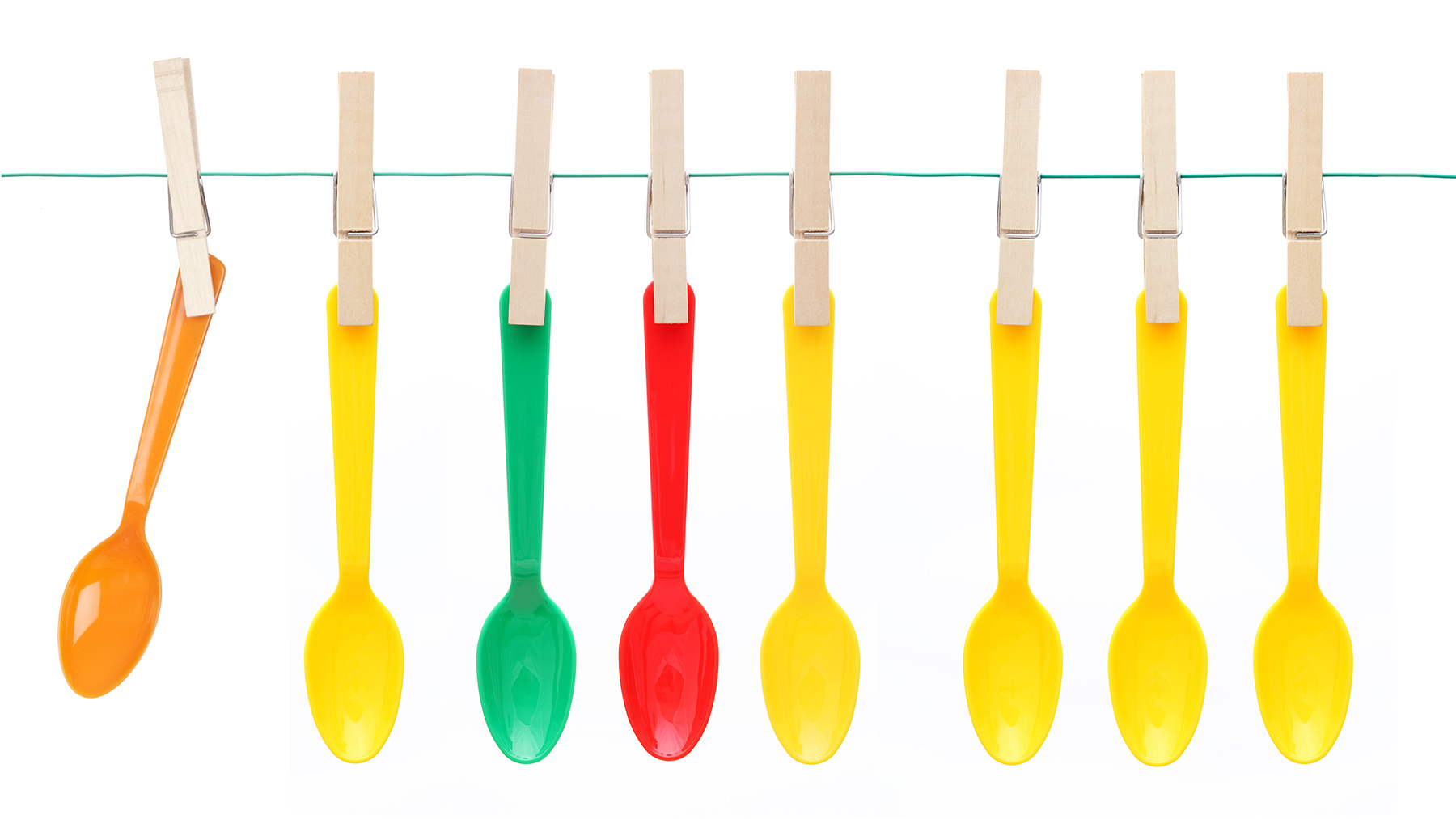Send your question to Umbra!
Q. We get cute, colorful, (supposedly) biodegradable plastic spoons at a local frozen yogurt joint. They would be perfect to reuse for my 2-year-old son, except that I’m worried about the chemicals they may be releasing, especially in response to the high temps of the dishwasher. Should I steer clear or is it OK to reuse this biodegradable product?
Jess W.
St. Louis, Mo.
A. Dearest Jess,
As a bit of a frozen yogurt fan myself, I know just the spoons of which you speak — thick, sturdy, and always cheerfully hued. They certainly look like they’d be at home in any toddler’s flatware set (or hey, an adult’s picnic kit or lunch bag). But as you well know, looks can be deceiving.
I checked into a few different brands of biodegradable, disposable utensils, and many report that their products are indeed reusable. Most also specify how much heat the spoons can withstand before they start to fall apart, from 185 degrees Fahrenheit for these models made from polylactic acid (PLA) to 220 degrees for these cornstarch-based dippers. These compostable wood utensils can also be cleaned and reused a few times.
More specific to your question about those heavy-duty yogurt spoons: I found only a few of the leading chains that clearly report their scoops are a-OK to spoon again another day, Yogurtland and Menchie’s among them (though the Menchie’s spoons are not biodegradable).
Ramani Narayan, a professor in the chemical engineering and materials science department at Michigan State University, assured me that PLA-based plastic cutlery that’s certified by the Biodegradable Products Institute is safe to reuse a few times — if you’re careful how you wash it. “’Biodegradable under composting conditions’ means the cutlery needs to be exposed to industrial and municipal composting conditions for it to break down and become food for microorganisms,” he notes via email. “However, it will not maintain its structural integrity in a dishwasher.”
Nor should you use strong detergents to clean the spoons – in fact, plain hot water during handwashing is best. That’s not necessarily because there’s any risk of chemicals leaching into your food: Narayan notes that PLA-based cutlery typically lacks any plasticizers or other dangerous additives. But soaps can kick off the degrading process, so it’s best to skip ’em.
Finally, don’t go overboard with the reuse. Even though PLA spoons are generally safe to use, they’re not intended for a permanent place in the drawer. Two or three times is really all you get before you should retire them to the (municipal) compost heap.
I should add, Jess, that I hesitate to give you free rein to reuse any other type of plastic spoon, let alone put it in the dishwasher. Regular plastic flatware can leach chemicals into your food, and manufacturers sometimes mix various additives into even biodegradable plastics. Besides making it tough to figure out exactly what’s in that spoon, Narayan warns that some of these additives don’t break down completely during composting, despite the products’ claims.
What I can say definitively is that your very best bet is skipping the Crayola-colored plastic utensils and bringing your own reusable spoons the next time a yogurt craving hits. Metal utensils are designed to handle repeated washings, exposure to soap, and a wide range of temperatures.
After all, while compostable plastics may represent a positive step forward, they have plenty of their own issues, too — so our priority should be reducing our consumption of throwaway items as much as possible.
Acidophilusly,
Umbra




